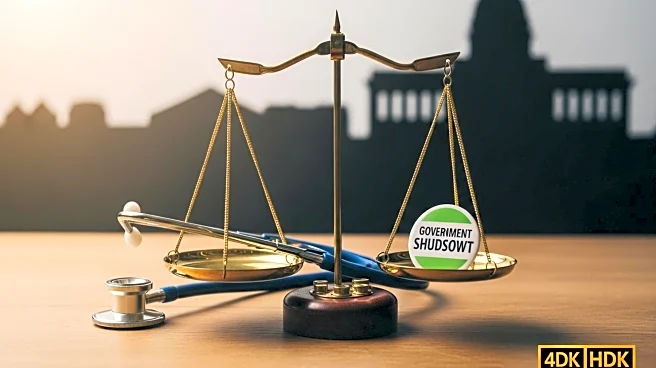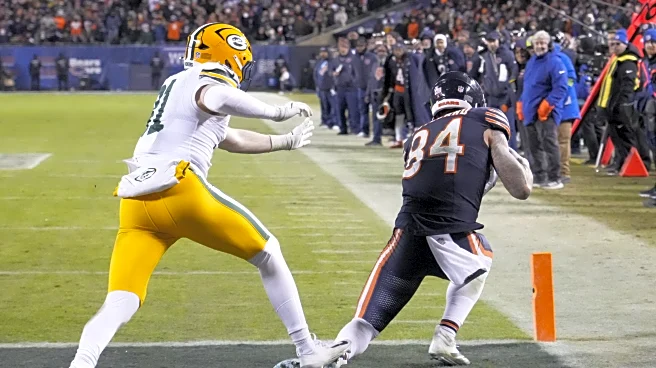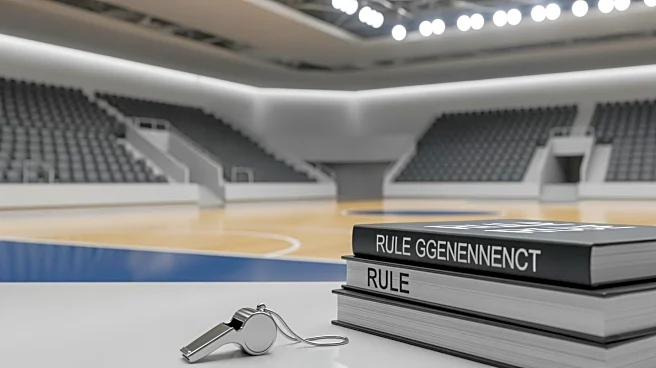What's Happening?
Senate Democrats are contemplating a government shutdown as a strategic move to secure concessions on health care funding from President Trump and the Republican majority. The shutdown could commence if no agreement is reached by Wednesday, potentially leading to mass layoffs of federal workers. This approach is supported by many Democratic voters and activists who have been urging Senate Democratic leader Chuck Schumer to take a firm stand against the Republicans. The Democrats are betting that the public will blame President Trump and the Republicans for the shutdown, which they hope will force a compromise. However, this strategy carries risks, as Republicans control both the House and Senate and have shown no willingness to negotiate under the Democrats' terms.
Why It's Important?
The potential government shutdown highlights the ongoing partisan battles over federal spending and health care policy. If the shutdown occurs, it could lead to significant disruptions in government services and impact thousands of federal employees. The Democrats' strategy reflects their frustration with the current administration and their desire to leverage the situation to gain political advantage. The outcome of this standoff could influence public perception of both parties and affect future negotiations on key policy issues. The Democrats' willingness to risk a shutdown marks a shift in their approach, as they have historically opposed such measures when initiated by Republicans.
What's Next?
If the shutdown occurs, Democrats hope it will pressure Republicans to negotiate a compromise on health care funding. However, the Republicans have indicated they will not relent, and the shutdown could lead to prolonged political and economic consequences. The Democrats may face internal challenges, as some members might vote to keep the government open or seek alternative solutions. The situation remains fluid, with potential for further political maneuvering and public debate over the implications of a government shutdown.
Beyond the Headlines
The Democrats' strategy to consider a shutdown reflects broader tensions within the party and among its base. Activists and liberal groups are pushing for more aggressive resistance against the Trump administration, viewing this as an opportunity to redefine the party's image. The shutdown threat also underscores the deep divisions in U.S. politics, where compromise is increasingly difficult to achieve. The long-term impact of this standoff could influence future legislative battles and the overall political landscape.










